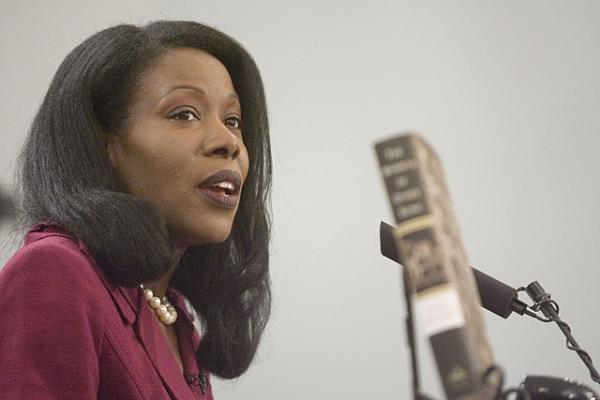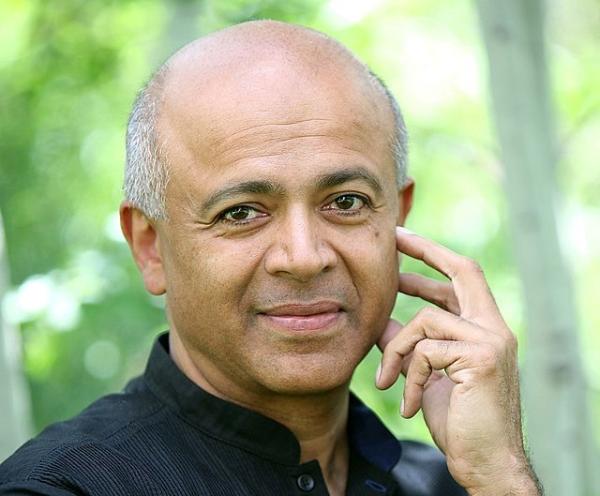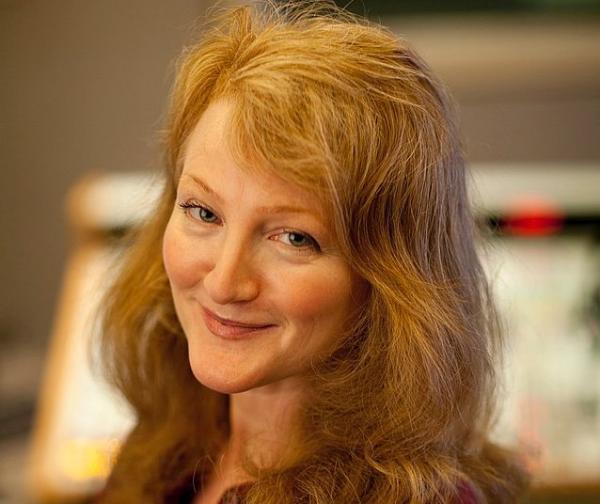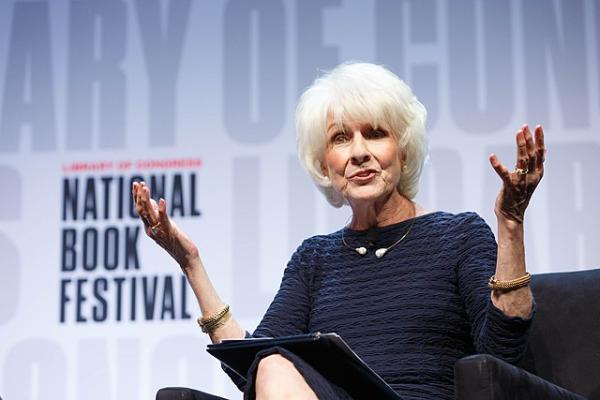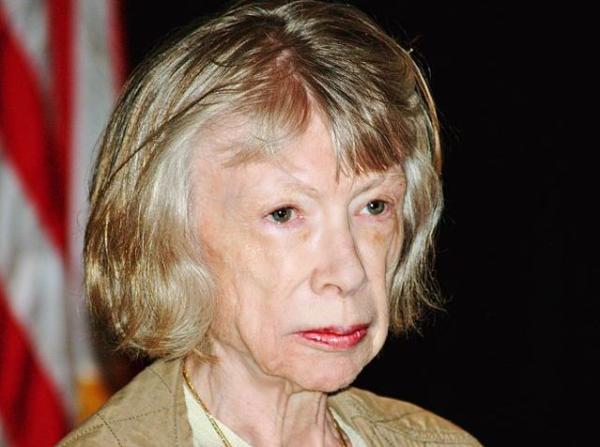NEH Celebrates Commencement Season
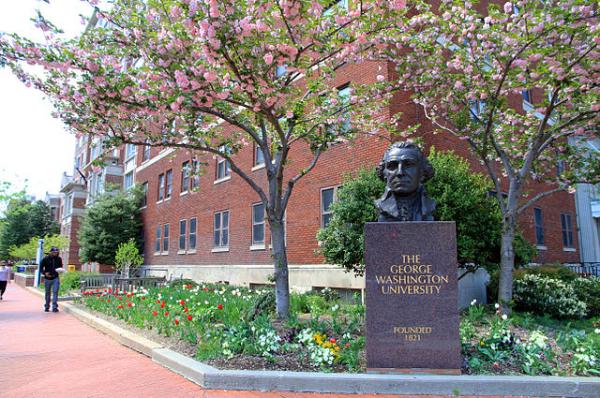

Each winter and spring, countless graduates across the country and the world sit for one final lecture. Commencement addresses are often a chance for academics, authors, philanthropists, actors, and any number of celebrities to send students off with parting words of wisdom.
As NEH welcomes a new class of historians, writers, editors, professors, and linguists to the world of post-graduate humanities, let’s take a look back at commencement speeches delivered by National Humanities Medalists of the last decade.
James Patterson |2019 National Humanities Medalist
For being one of the most successful American authors of our time. His prodigious imagination has resulted in fascinating works that have been enjoyed by millions and his championship of literacy in America has inspired many to realize their potential.
In 2019, author James Patterson delivered the University of Florida’s commencement address. Six years prior, Patterson established the James Patterson Teacher Education Scholarship to support the university’s education students pursuing elementary and secondary school teaching careers.
James Patterson | University of Florida | Gainesville, Florida, 2019
“I came across something that the French author Flaubert said. It captured the way I feel when I sit down to write my stories every morning, 365 days a year. Flaubert wrote:
It is a delicious thing to write/to be no longer yourself but to move in an entire universe/of your own creating. /Today, for instance, / as man and woman, / both lover and mistress, / I rode in a forest on an autumn afternoon under the yellow leaves, / and I was also the horses, / the wind, / the words my people uttered/even the red sun that almost made them close their love-drowned eyes.
“That’s what it’s like to write. It’s a glorious way to make a living … It’s also my passion … I hope all of you find your passion in life!”
Isabel Wilkerson | 2015 National Humanities Medalist
For championing the stories of an unsung history. Her masterful combination of intimate human narratives with broader societal trends allows us to measure the epic migration of a people by its vast impact on our Nation and on each individual life.
In 2014, author Isabel Wilkerson delivered Bates College’s commencement address. In 2010, she published The Warmth of Other Suns: The Epic Story of America’s Great Migration, a project that she devoted 15 years to, spending hundreds of hours learning the lives of her three central figures.
Isabel Wilkerson | Bates College | Lewiston, Maine, 2014
“No matter what course your life takes, there is but one thing that you absolutely must do before you leave this planet. You must make it a better place than it was before you got here. You must leave this world a better place than it would have been if you had not existed, fortunately or unfortunately, that is actually not as difficult a task as it sounds. Wars, poverty, inequality, intolerance, child abuse, climate change, sickness, disease, social injustice — there are so many challenges that we face, the world needs you now more than ever.”
Abraham Verghese | 2015 National Humanities Medalist
For reminding us that the patient is the center of the medical enterprise. His range of proficiency embodies the diversity of the humanities; from his efforts to emphasize empathy in medicine, to his imaginative renderings of the human drama.
Since 2007, physician and author Abraham Verghese has served as the Associate Chair of Internal Medicine and a tenured professor in the Theory and Practice of Medicine at Stanford Medical School. His dedication to patients and emphasis on the importance of bedside medicine have guided his work and instruction, culminating in his 2014 speech at Stanford Medical School’s graduation ceremony.
Abraham Verghese | Stanford University School of Medicine | Stanford, California, 2014
Read the 2014 Stanford Medical School Commencement Address in full here.
“And the lineage goes on from Paracelsus to Vesalius, Harvey, Lister, Pasteur and of course you are so fortunate at Stanford to see this history as you stroll down our Discovery Walk where on those beautiful panels you can see both Stanford history and scientific history, the two being quite inseparable, charted together. I mention this history because I hope that as of today whenever you enter a room you will be conscious of that legacy, of this unbroken chain extending back centuries, how in standing before a patient, you stand there as the latest incarnation of this lineage and you have behind you generations of physicians, standing with you in the room, from Paracelsus, Osler, Curie, Shumway.”
Wynton Marsalis |2015 National Humanities Medalist
For celebrating the traditions of jazz music from New Orleans to Lincoln Center and beyond. As a virtuoso trumpet player, composer, and educator, he has brought jazz to a wider audience and inspired music lovers to embrace America’s quintessential sound.
Devoted to spreading the gospel of jazz, Wynton Marsalis wrote in his 2008 book Moving to Higher Ground: How Jazz Can Change Your Life, “jazz music is America’s past and its potential, summed up and sanctified and accessible to anybody who learns to listen to, feel, and understand it.” In addition to being a gifted performer, Marsalis is an educator, serving as the managing and artistic director of jazz at Lincoln Center. In 2009, he received an honorary doctor of arts degree from Northwestern University, where he spoke and performed the commencement speech.
Wynton Marsalis | Northwestern University | Evanston, Illinois, 2009
“See, we are always in the process of becoming ourselves. So, enjoyment – whatever it means to you – is something to pursue. Just like you lay out plans to be rich or in shape, plan to be happy. When something makes you happy – chase it. And if you’re not good at it, work on becoming good at it. And if you can’t be good at it, be happy being bad. The positive frame of reference and the power of affirmation create good health. Affirm people around you, and you will be affirmed.”
Terry Gross | 2015 Humanities Medalist
For her artful probing of the human experience. Her patient, persistent questioning in thousands of interviews over four decades has pushed public figures to reveal personal motivations behind extraordinary lives—revealing simple truths that affirm our common humanity.
For more than four decades, Terry Gross has shared insights and stories from the world’s leading minds with the public through her daily NPR radio show, Fresh Air. Thoughtful, yet willing to ask challenging questions, Gross has engaged subjects in intimate, compelling conversation, encouraging her guests and audience to think about who we truly are. She shared this gift with the graduating Bryn Mawr College in her 2014 commencement speech.
Terry Gross | Bryn Mawr College | Bryn Mawr, Pennsylvania, 2014
“I believe we’re shaped by our failures, by our weaknesses and setbacks, at least as much as we are by our successes. And in many cases, those failures make ultimate success possible.”
José Andrés | 2015 National Humanities Medalist
For cultivating our palettes and shaping our culture. He has introduced new and vibrant ingredients to our Nation, whether through his innovative techniques in the kitchen, his work on clean cooking technology and access to education, or the inspiration he provides to new Americans.
Since arriving in Washington, D.C., in 1993, philanthropist, restauranteur, and chef José Andrés has built an empire based on a simple idea: changing the world through the power of food. In addition to his portfolio of restaurants around the country and Michelin stars, Andrés is changing the way we address disaster and support people caught in the crosshairs through his nonprofit World Central Kitchen. In his 2014 commencement address to the graduates of George Washington University, he shared the principles that guide him as a chef, humanitarian, and man.
José Andrés | George Washington University | Washington, D.C. 20014
“You are at the epicenter of the American dream. But today you are doing something much more important. You are shaping the new American dream. It's not about having high-paying jobs, big houses, fast cars. There is nothing wrong with that. But the new American dream is bigger. It's about how to achieve your success while also making an impact in the world. What you create for yourselves you must also create for others. We need to know ourselves, embrace our individuality. But it's not only the "I" it is the "we."
Krista Tippett | 2013 National Humanities Medalist
For thoughtfully delving into the mysteries of human existence. On the air and in print, Ms. Tippett avoids easy answers, embracing complexity and inviting people of all faiths, no faith, and every background to join the conversation.
Krista Tippett is a Peabody Award-winning journalist and best-selling New York Times author. In 2003, she began hosting Speaking of Faith, a weekly radio program, and today hosts the On Being podcast, where she asks what it means to be human.
“There is an amazing intimacy about radio that lends itself to talking about intimate things, talking about spiritual things, or talking about what it means to be human,” Tippett says. “The medium of radio creates space for the spiritual and religious life, tapping into the reflective part of us.” Tippett brought her signature introspection, intimacy, and thoughtful evaluation of what it means to be an individual, and part of a collective species, to her Middlebury College commencement speech in 2019.
Krista Tippett | Middlebury College | Middlebury, VT 2019
“I hear this longing and commitment rising up in your generation. To take up the question of who you will be, and how you will be in the world, with as much seriousness and joy as the question we’ve privileged in this culture – of what you will do. I see you insisting on joining inner life with outer presence in the world. The pursuit of what it means to be human, in your generation, has become intimate and civilizational all at once.”
Diane Rehm | 2013 National Humanities Medalist
For illuminating the people and stories behind the headlines. In probing interviews with pundits, poets, and Presidents, Ms. Rehm’s incisive, confident, and curious voice has deepened our understanding of our communities and our culture.
Through her decades-long career as a journalist, Diane Rehm has created programs that foster valuable dialog and civil debate. Her show, says Rehm, is an opportunity “to think in different ways about an issue that perhaps you’ve already made up your mind about.” She expanded on these values in her 2007 commencement speech to American University College of Arts and Sciences graduates in her hometown of Washington, D.C.
Diane Rehm | American University College of Arts & Sciences | Washington, D.C. 2007
Click here to watch the full speech.
“Listening is a form of engagement, of opening the mind and the heart to another. I would suggest that by listening instead of talking, we may become more attentive to the whole person and by that very engagement learn more about ourselves. Today’s world involves taking the education you have so rightly earned and the talents that God has given you and going out into the world to use them to display those gifts to the fullest. But I leave you with this one thought: What the world needs now, more than great talkers, are great listeners. Great listeners who are teachers, students, friends, spouses, parents, children, and citizens.”
Anna Deavere Smith | 2012 National Humanities Medalist & 2015 Jefferson Lecturer
For her portrayal of authentic American voices. Through profound performances and plays that blend theater and journalism, she has informed our understanding of social issues and conveyed a range of disparate characters.
Anna Deavere Smith’s remarkable career has spanned mediums, from the written word to beloved performances. Through it all, her work has maintained a civics focus, using her art to engage audiences in public dialog, working towards social change. As the founder of Anna Deavere Smith (ADS) Works , she has challenged participating artists to “walk in civic space,” addressing contemporary topics and pursuing artistic excellence at the same time. She posed a similar challenge to the 2017 graduating class of Loyola Marymount University in her commencement speech that spring.
Anna Deavere Smith | Loyola Marymount University | Los Angeles, CA 2017
“I know a weaver, an African-American woman, who crossed the Atlantic and showed up a weave at a weaving school in Sweden without having applied for enrollment. Her curiosity took her that far. The school only had 12 looms which were all occupied. Somehow they were charmed by her and brought in a 13th loom. Through the practice, she refined a technique of deliberately breaking the warp thread. As you know, the warp is the long thread which has the tension to hold the weft threads that are going over and under it. To break a warp thread is ambitious. It requires a lot of work to restore the break. Yet, what resulted when she broke the warp thread was a beautiful design resulting in a different type of fabric, a design that became her identity as an artist.
“I'm not suggesting that you deliberately break the metaphoric warps. I only call for creativity and how you think about weaving, how you think about making community, how you think about loving beyond champagne and trips to Paris, how you think about making community beyond your home, beyond your fence, beyond your turf, beyond your knowledge. Walk in the world actively looking for the warp thread.”
Joan Didion | 2012 National Humanities Medalist
For her mastery of style in writing. Exploring the culture around us and exposing the depths of sorrow, Ms. Didion has produced works of startling honesty and fierce intellect, rendered personal stories individual, and illuminated the seemingly peripheral details that are central to our lives.
Over several decades beginning in the 1950s, Didion wrote five novels and five screenplays, as well as 13 nonfiction books, including personal essay collections, memoirs, and political reporting. In her 1975 University of California Riverside commence address, Didion is at her best. A singular voice in American writing, Didion is evocative yet straightforward, with a sense of humor so dark you may miss it. But, as she said herself, “I don’t see any point in writing anything that isn’t funny.” Available in part until 2021, Didion’s speech was recently released in full by the Riverside Archives.
Joan Didion | University of California Riverside | Riverside, CA 1975
Read the full commencement speech here.
“I’m not telling you to make the world better, because I don’t think that progress is necessarily part of the package. I’m just telling you to live in it. Not just to endure it, not just to suffer it, not just to pass through it, but to live in it. To look at it. To try to get the picture. To live recklessly. To take chances. To make your own work and take pride in it. To seize the moment.
“And if you ask me why you should bother to do that, I could only tell you that the grave’s a fine and private place, but none I think do there embrace. Nor do they sing there, or write, or argue, or see the tidal bore on the Amazon, or touch their children.
“And that’s what there is to do and get it while you can and good luck at it.”
